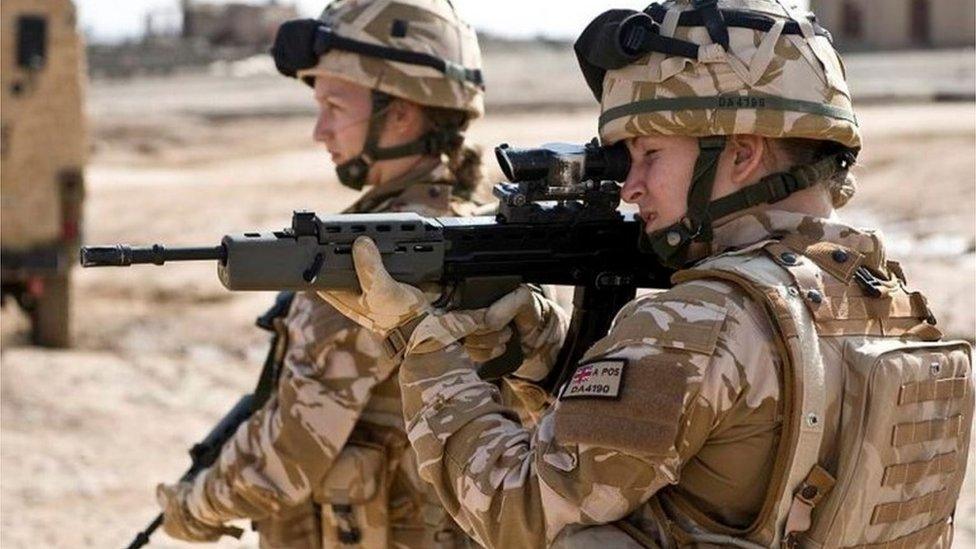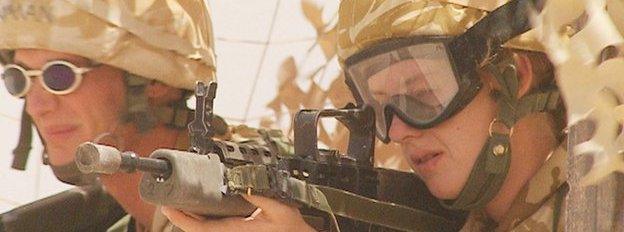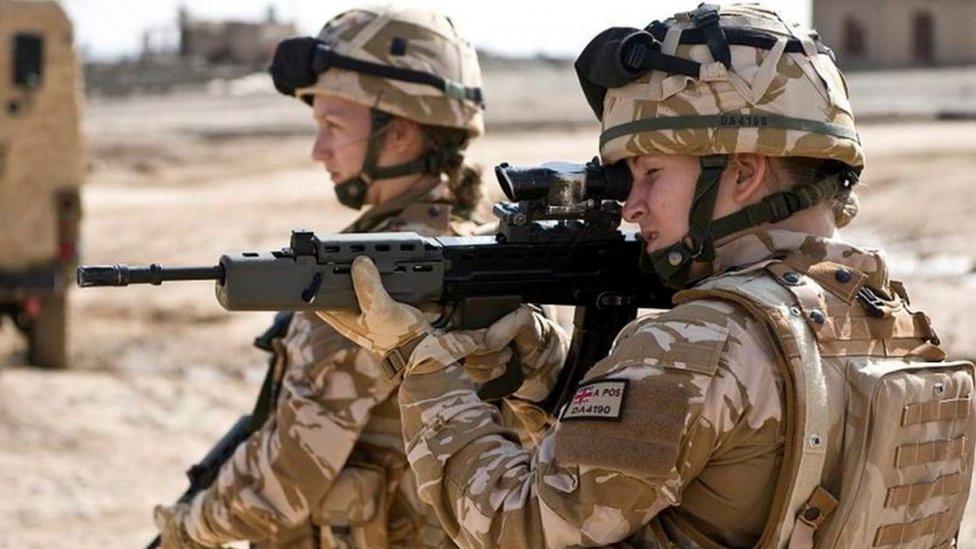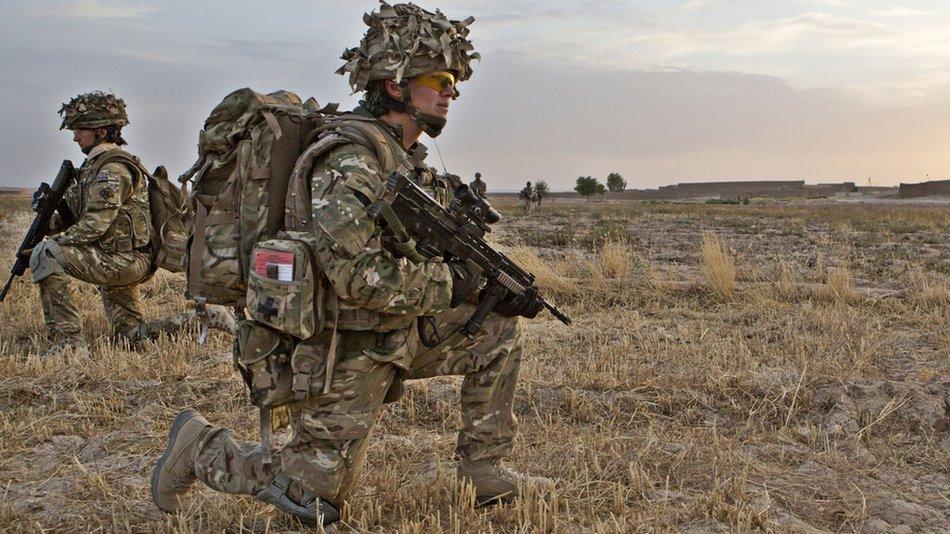Women to serve in close combat roles in the British military
- Published

A ban on women serving in close combat units in the British military has been lifted by Prime Minister David Cameron.
Women, who have previously served on the front line in support roles, will now be allowed to enter the cavalry, infantry and armoured corps.
Mr Cameron said it was a "major step" and meant the armed forces could "make the most of all its talent".
But the Army's research suggests fewer than 5% of its 7,000 women would pass the current infantry fitness test.
'World-class'
The PM's decision follows a government review in which the head of the Army, General Sir Nick Carter, recommended the ban should be lifted.
Announcing the move at a Nato summit in Warsaw, Poland, Mr Cameron said: "It is vital that our armed forces are world-class and reflect the society we live in.
"It will ensure the armed forces can make the most of all their talent and increase opportunities for women to serve in the full range of roles."
The opening of roles for women in close combat are expected to be phased, initially with positions in cavalry and armoured units and then to the infantry.
Concern over the issue had centred on whether women had the physical capability to withstand the demands on their body that some of the roles will require.
The basic fitness tests for the infantry involves recruits completing an eight-mile march in under two hours while carrying a backpack weighing 55lbs (25kg).
There is also an advanced fitness test of marching two miles carrying 20kg in 18 minutes, and further two-part test of 20 miles carrying 25kg in five hours, followed by 25kg over 25 miles in six hours and 15 minutes the following day.
'Winning'
Hannah Bryce from the Royal Institute of International Affairs told the BBC News website it was a very important decision which will "make the British Army not only more representative of its society, but also more operationally effective".
She added: "Wars are not just fought by men, and do not just affect men. The battleground has already moved from the remote frontlines of 20th Century warfare to a more urban environment and as a result is influenced by all society and not just military personnel.
"The armed forces need women in all military roles if they are to understand and influence events on the battlefield and beyond.
"This is not just about fairness, but about winning."

Analysis

By Jonathan Beale, BBC defence correspondent
Women have already been serving on the front line in support roles such as medics and bomb disposal experts - most recently in Afghanistan.
But until now they've been banned from close combat roles - such as infantry units.
The British Army's already concluded that women will not have an adverse effect on a unit's cohesion or ability to fight - one of the old arguments to retain the ban.
So the review focused on the physical requirements - put simply whether a woman's body can withstand the demands of carrying large loads on long marches.
Even the Army's own research shows that less than 5% of the 7,000 women serving in British Army would pass the current tests to join the infantry.
The expectation is that the numbers of women applying will be relatively small. But the decision to lift the ban puts the UK in line with many of its allies, including the US.

'Paid for in blood'
Ministers first signalled an intention to allow women into such roles in 2014 when a government-commissioned report, external on the ban called for more research to assess the physical demands involved.
Defence Secretary Michael Fallon later said he hoped to "open up combat roles to women" saying they "should be determined by ability and not gender".
He ordered an 18-month review of training procedures and the physical demands of fighting to ensure the change can be made without damaging female soldiers' health.
Speaking in December last year, Mr Cameron said: "We've already lifted a number of barriers in our armed forces with the introduction of female submariners and women reaching the highest ranks in all services. We should finish the job next year and open up ground combat roles to women."
The UK move comes after the US announced last December that all combat roles in its military would be opened to women.
But proposals has attracted criticism in the past.
In April former Army chief Colonel Richard Kemp said introducing women into such roles would be a "foolish move" that would be "paid for in blood".
Writing in the Telegraph,, external Col Kemp, who led the British forces in Afghanistan in 2003, argued: "This foolish move will reduce the capability of the infantry, undermine our national defences and put lives in danger."
He claimed only "a very small number" of women wanted to join the infantry, and that only "a fraction" of those would have the physical capability to do so.

Are you a woman who has served in the British military? What do you think about the ban being lifted?
If you have an opinion or experience you would like to share then share it with us in the following ways:
Email us at haveyoursay@bbc.co.uk, external
Please include a contact number if you are willing to speak to a BBC journalist. You can also contact us in the following ways:
Tweet: @BBC_HaveYourSay, external
Send an SMS or MMS to 61124 or +44 7624 800 100
Contact us on WhatsApp number +44 (0)7525 900971
Text us on 61124 or +44 7624 800 100 if you are outside the UK
- Published6 April 2016

- Published19 December 2014
